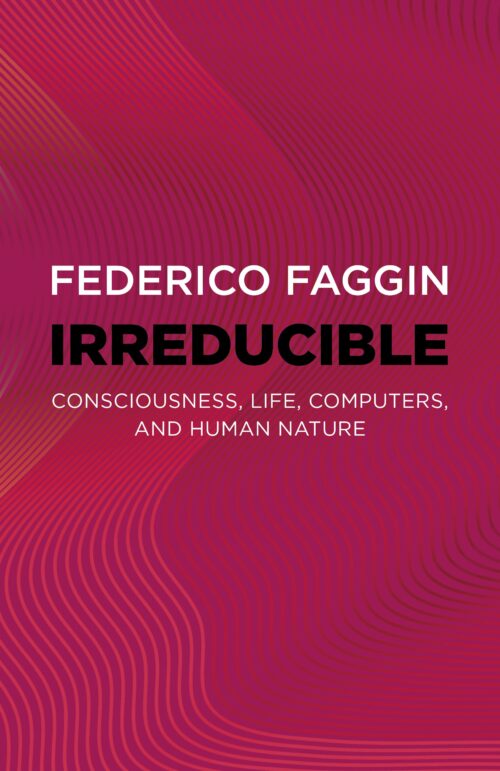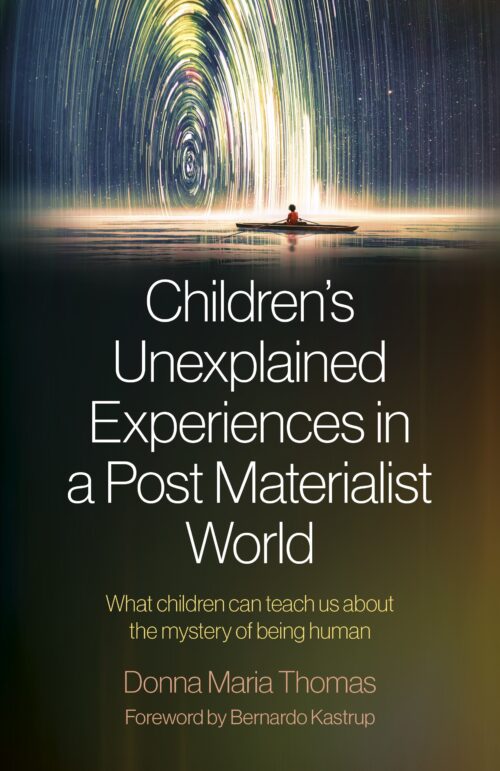Announcing Essentia Books, an imprint dedicated to idealism
Reading | Philosophy
![]() The editors | 2023-07-16
The editors | 2023-07-16

Today we are proud to announce the launch of Essentia Books, a new imprint. Through it, we will be publishing scholarly works relevant to metaphysical idealism, the notion that nature is essentially experiential. Among many other leading authors, we will publish the latest book by Federico Faggin, inventor of the microprocessor and MOS silicon gate technology, recipient of the National Medal of Technology and Innovation from U.S. President Barack Obama, and probably the most well-rounded idealist alive.
Essentia Books is a collaboration between Essentia Foundation and Collective Ink, a subsidiary of Watkins Publishing. Watkins handles production, distribution, marketing and sales, while Essentia Books does the editorial work and contributes to marketing. Essentia has full editorial control of the material to be published by the new imprint, and will use it to highlight important, though often overlooked, work in areas relevant to idealism.
Because Watkins is a for-profit company—and there is nothing wrong with that—the books will have commercial prices. The percentage of the proceeds that comes to Essentia Foundation will, however, be fully reinvested in the foundation’s activities, particularly in further marketing of the publications of the imprint.
If you are an academic or qualified scholar in areas relevant to our work, and you believe your material is sufficiently related to metaphysical idealism, consider submitting your manuscript to us via this link.
Our flagship book for the launch of the new imprint is Federico Faggin’s Irreducible. Federico is one of the greatest luminaries of high technology alive today. A physicist by education, he is the inventor of the microprocessor and the MOS silicon gate technology, both of which underlie the modern world’s entire information technology. With the knowledge and experience of a lifetime in cutting-edge fields, Federico now turns his attention to consciousness and the nature of reality, sharing with us his profound insights on the classical and quantum worlds, artificial intelligence, life and the human mind. In this book, he elaborates on an idealist model of reality, produced after years of careful thought and direct experience, according to which nature’s most fundamental level is that of consciousness as a quantum phenomenon, while the classical physical world consists merely of evocative symbols of a deeper reality. Irreducible will be officially launched on May 31st, 2024.

But already in a few days, on July 28, 2023, we will be launching our first book: Donna Maria Thomas’s Children’s Unexplained Experiences in a Post Materialist World: What children can teach us about the mystery of being human. Historically, children’s inexplicable experiences—from telepathy and conversing with deceased relatives to out-of-body or near-death experiences—have been theorized through a traditional scientific lens, which may not have the explanatory power to account for such experiences. In the book, Thomas shares research that she and other scholars, past and present, have conducted with children and young people across the world. By placing children’s unexplained experiences and views about reality in the contexts of culture, consciousness and the nature of self, the book offers a middle-way for explaining these childhood experiences within post-materialist science and philosophy. Thomas suggests that children’s experiences could greatly contribute to a new paradigm for understanding the mystery of being human and the nature of reality.

Here are two more books currently in production.
How Life Arose from Mind: The mind-matter problem within the Neo-Darwinian materialist conception of nature
By Daniela Panighetti and Massimiliano Sorrentino
The purpose of this book is to show that the mind-body problem not only concerns the relationship between mind and brain, but rather our current conception of the very phenomenon of life. In fact, it concerns our conception of the whole of nature in materialist terms. The book addresses the Neo-Darwinian claim that, since a naturalistic explanation for the emergence and development of living organisms exists, or is in principle viable, living organisms are not what they appear to be: that is, they are not the product of a mind. We argue that such is not the case.
The Sapient Cosmos: What a modern-day synthesis of science and philosophy teaches us about the emergence of information, complexity, consciousness, and meaning
By James B. Glattfelder
Ever since the human mind awoke to its own existence, it wondered about its cosmic significance. By dispelling myths and religious convictions, science entered the arena of explanatory templates. A tectonic shift in understanding began when the mind started decoding the mathematical language of the universe. To this day, the technological prowess unleashed by scientific knowledge remains awe-inspiring. However, science excluded two crucial domains from its field of inquiry. Firstly, the formation of complex systems—especially metabolic structures—appears to defy the physics of cosmic disorder and decay. Then, the nature of consciousness itself was deemed unworthy of academic discourse until not too long ago. Furthermore, the adoption of physicalism as a metaphysical foundation for science was an enormously consequential choice, which today is erroneously seen as an integral part of the edifice of science. This book chronicles an ongoing paradigm shift affecting physics and philosophy. Consciousness is rediscovered at the core of existence, expressing an intrinsic yearning for cosmic complexity, while the fabric of reality is woven from threads of information.

Essentia Foundation communicates, in an accessible but rigorous manner, the latest results in science and philosophy that point to the mental nature of reality. We are committed to strict, academic-level curation of the material we publish.
Recently published
Reading
Essays
Seeing
Videos
Let us build the future of our culture together
Essentia Foundation is a registered non-profit committed to making its content as accessible as possible. Therefore, we depend on contributions from people like you to continue to do our work. There are many ways to contribute.















